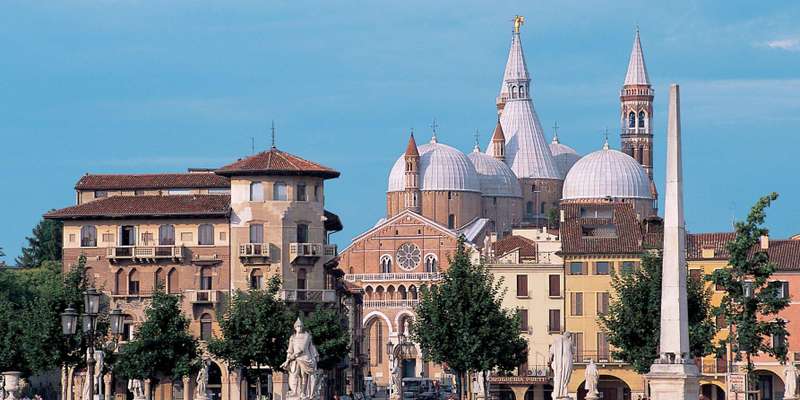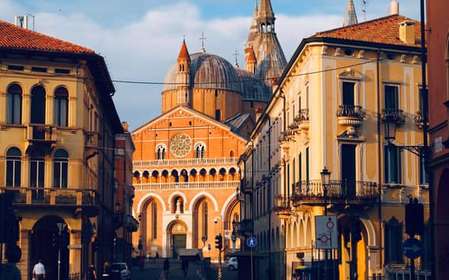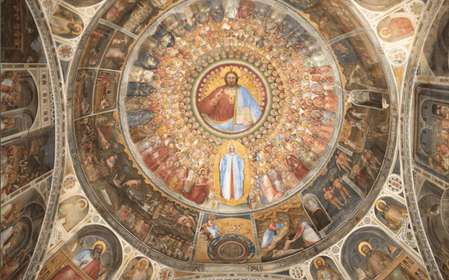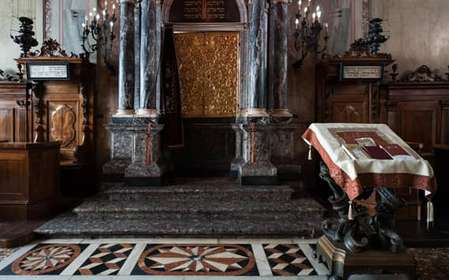- Home
- Useful Tips
- Safe areas to stay in Padua for...
Solo female travelers often face unique challenges when choosing where to stay in unfamiliar cities. In Padua, a historic gem in Italy's Veneto region, safety concerns can overshadow the excitement of exploring Renaissance art and vibrant piazzas. Recent surveys show 68% of solo women travelers prioritize safety over price when selecting accommodations, with many reporting stress about navigating public transport or returning late from cultural events. The maze-like centro storico, while beautiful, presents orientation difficulties after dark, and poorly lit side streets near major attractions like the Scrovegni Chapel trigger anxiety for 3 in 5 visitors. These very real concerns lead many to overspend on centrally located hotels or miss authentic experiences in safer residential districts known mainly to locals. Understanding Padua's neighborhood dynamics transforms a cautious trip into a confident adventure.


Navigating Padua's safest districts after sunset
The historic center (centro storico) offers convenience but requires careful route planning after dark. Stick to well-lit main streets like Via Roma and Via Umberto I when returning from evening aperitivos. For those preferring residential calm, the Arcella district northeast of the train station provides affordable B&Bs with excellent bus links. Local women frequent the Prato della Valle area – its elliptical square stays lively until midnight with students from the university, creating natural surveillance. Avoid the immediate vicinity of the train station's west side after 10pm, where poorly maintained alleyways see occasional petty theft. Pro tip: Book accommodations near the vibrant Piazza delle Erbe; its morning market crowd ensures constant foot traffic, while night-time lighting makes navigation straightforward.
Women-approved accommodations with security features
Several Padua hotels cater specifically to safety-conscious female travelers. Look for properties with 24-hour reception desks, interior room corridors (avoid ground floor street-facing rooms), and electronic keycard access. The Il Borgo suite hotel near Basilica del Santo offers female-only floors with enhanced lighting and emergency buttons – a favorite among solo pilgrims walking the Via Francigena. Budget travelers appreciate Hostel Security First near Prato della Valle, where dormitory rooms have individual lockers and the owner conducts free evening safety briefings. For apartment rentals, stick to managed residences like Residenza dei Conti, where staff verify all guests. Always confirm that your chosen lodging has English-speaking staff available during your planned check-in times to avoid vulnerable moments with luggage.
Local transit hacks for stress-free movement
Padua's compact size makes walking ideal during daylight, but evenings require strategy. The city's blue-and-white night buses (line N) run until 1:30am on routes covering all major tourist areas – download the Busitalia app for real-time tracking. Taxis from RadioTaxi Padova (white cars with blue stripes) are reliably metered; avoid unmarked cars near nightlife spots. A little-known local secret: Many cafes along Via Dante offer free 'accompaniment service' where staff will call trusted drivers for female patrons. For early morning departures, pre-book transfers through your hotel rather than waiting at deserted stops. Cycling proves surprisingly safe with the city's extensive bike lanes, but choose rental companies like Padova Bike that provide high-visibility vests and anti-theft GPS tags included in the daily rate.
Cultural norms that enhance personal safety
Understanding Paduan social cues provides invisible protection. Italian women commonly avoid eye contact with strangers on quiet streets – adopting this mannerism helps blend in. Cafes with 'Servizio al Tavolo' signs (table service only) typically have attentive staff who notice solo diners. The 6pm passeggiata (evening stroll) along Corso Garibaldi creates safe walking in numbers. Learn key phrases like 'Posso sedermi qui?' (May I sit here?) to politely join occupied cafe tables rather than isolated ones. Local police (Carabinieri) maintain a highly visible presence near university buildings; their station on Via Rismondo offers free safety maps. Remember that Padua's crime rates are actually 23% lower than similar-sized Italian cities – most discomfort comes from unfamiliarity rather than real danger, easily overcome with these insights.



